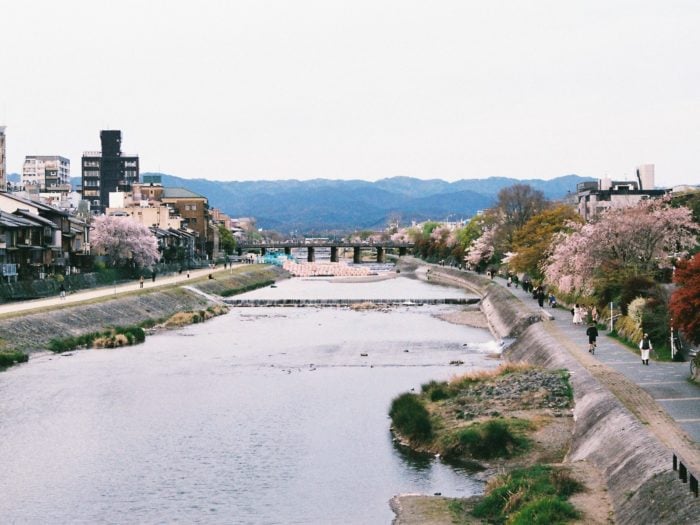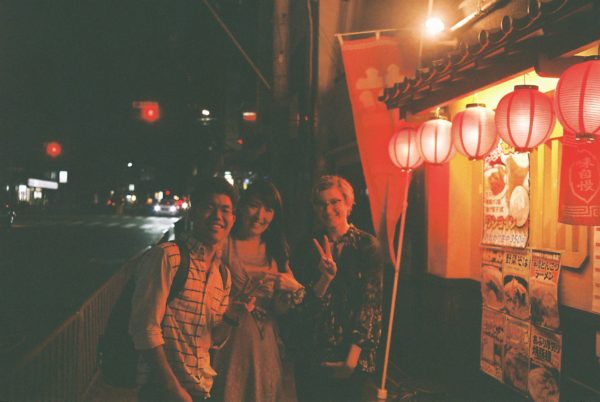
The chances are you will probably feel lonely in Japan.
There’s an expectation when moving to a new country that the excitement of being there will carry you through; that opportunities and friendships with come effortlessly. But if you’re anything like me, after that initial surge of excitement wears off, you’ll have to give yourself a little push to get things rolling socially in Japan. Add to the mix a language barrier, vast cultural differences, and rare but present discrimination, and the experience can sometimes be isolating.
With the right mindset, loneliness doesn’t have to cripple you. With time, a little patience, and some outside help, you’ll see loneliness as just another emotion, and start to make lasting relationships in your new home.
For some context, I’ve lived in Japan for nearly a year with my partner, Olivia. While we have each other to come home to, it’s fair to say we have both experienced our share of loneliness. At times it feels like we’re stranded in a strange land with no-one to talk to but each other, which is only partly true. Loneliness can feel even worse overseas for a number of reasons. There’s the added distance from loved ones for one. And there’s the fact that you when you’re hit with your first wave of it, it often comes with feelings of failure. Feeling isolated probably wasn’t high on your to do list, and it can feel especially jarring to find yourself in that state in an unfamiliar environment. It might even be difficult to admit, to others and yourself.
Expect it, accept it.
This first point might sound counter-intuitive. No one wants to feel lonely. But a little acceptance can go a long way. This starts with managing your expectations of what living in Japan will be for you. Upon arrival, you may find that you’ve put a lot more pressure on yourself than you expected. You may have brought your old habits, or maybe a tendency to shy away from meeting new people. You’ve essentially been dropped into a whole new environment, with none of the things that made the old one comfortable. There are bound to be some teething issues. It’s unrealistic to think that we can eliminate loneliness from our lives, but when we change our relationship to it, we start to see is as transient, just like happiness or anger.

Rainy streets in Kyoto
You’ll have your moments of loneliness, and that’s OK. It doesn’t have to define your experience of Japan.
Phone home.
During those moments, touching base with your old life can be important. There’s no shame in calling your family, parents, or friends. At first, you may find them to be a crucial support in transitioning into your new existence here in Japan, and it’s perfectly reasonable to want to keep a hold on that lifeline for the duration of your stay. If you have friends and family to call in your low moments, that’s good. If you have someone you can open up to about your loneliness, even better. At the times when you can feel the weight of your decision to live overseas pushing down on you, reconnecting with a familiar face, or voice, can make a tonne of difference.
While it’s important to stay in touch, there is something to be said for moderation here. There’s no substitute for real interaction, and relying too much on friends and family back home (for example calling home every day) may end up convincing you that making new friends is not as essential as you thought. Those relationships back home shouldn’t be a crutch, and connecting with real people who you can speak to face to face is essential to start dealing with that feeling of loneliness in the medium to long-term.
Use technology
You’ve probably heard of apps and services such as Meetup. You may be completely on board with meeting and hanging out with perfect strangers, or you may recoil at the very thought. Either way, technology can be invaluable in receiving that little push that will get your social life rolling – in the real world, not just online. Feel like having drinks in an Osaka park during cherry blossom season? Karaoke in Shibuya? How about picking up trash along the picturesque Kamo River in Kyoto with a group of other Kyoto residents? It might feel a little unnatural at first; almost like a blind-date, but remember that you’re all in the same boat, and no one goes into these things with absolute confidence.

Olivia outside a ramen shop after meeting some new friends at a Kyoto pub-crawl on Meet-up.
Events such as these can be great for building connections with locals and foreigners alike. Just remember to install the LINE messenger app on your phone, as this is the messaging app that 90 percent of Japan seems to use. It’s really important that you connect with people offline as well as online. Social media can be a useful tool, but the human brain evolved for real people, not screens. You’ll get the most satisfaction from face- to face meetings such as these.
Engage with the locals
You might have been told that Japanese people are shy or standoffish. Your first impression might even reflect this, as our brains tend to look for information to confirm our preconceptions. There are a plethora of stereotypes for every culture in the world, but don’t put too much stock in them, as everyone’s experience will be different. From my own, the people I have met have been both very willing to help a blundering foreigner, and also in making friends with one. Most importantly, they tend to easily laugh off my many faux pas, which tend to come from learning a new culture and language.
If you’re learning Japanese, it might be a good idea to connect with a local tutor. Local town ward offices usually have volunteer Japanese language classes where you can go to learn the language for a very small fee (mine offers 6 months’ worth of lessons for a one off fee of 2000 yen), and meet people there too. This is helpful not only for language practice, but also for the potential to ask some questions about the Japanese way of life. On the flip side, if you’re interested in making some extra money and getting even more engagement with the locals, you could try offering your own English tutoring. Once again, technology is your ally here, with plenty of tutoring opportunities for English speakers on sites like Hello Sensei.
And don’t forget; if you’re living in one of Japan’s bigger cities, there should be a smattering of other expats to connect with too. Check out Charlie’s article on making English-speaking friends in Japan for some more advice in this department.
Be patient
There will be a tipping point after which the pieces will start to fall together. This may come in the first few weeks, or months into your experience. If you think it’s not happening fast enough, take a moment to see the big picture. Try accepting where you’re at, and know that there are always opportunities to connect with others, if you know where to look.
Featured Image: The Kamo River, Kyoto
Article by Lawrence Johnson













